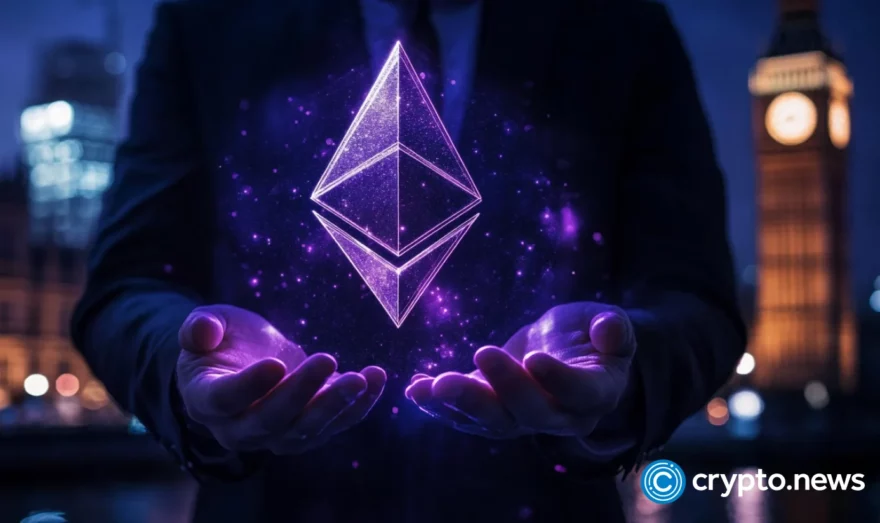A Guide To Cardano: Is It The Ethereum Killer?

Which one is better: Cardano or Ethereum? Click through to learn the differences between the two blockchains and why Cardano is often dubbed the “Ethereum killer”! Thanks to recent market cap increases, Cardano (ADA) is now the eighth-largest cryptocurrency by market cap. Cardano is often dubbed the “Ethereum killer” because it aims to solve issues often found on the Ethereum blockchain. What are those issues, and how does Cardano aim to address them? Read on to find out.
Table of Contents
What Is Cardano?
Cardano is a blockchain launched in 2017 by Ethereum co-founder Charles Hoskinson and his team at IOHK. It aims to be a third-generation blockchain that improves on the Bitcoin (first-generation) and Ethereum (second-generation) blockchains by being highly scalable.
Cardano is built on the environmentally friendly and energy-efficient Ouroboros proof-of-stake mechanism, developed by scientists from major universities.
ADA, Cardano’s Native Token
Cardano’s native token is ADA, named after mathematician and computing pioneer Ada Lovelace. Similar to ETH on Ethereum, ADA is used to pay for blockchain transactions and can be staked to improve blockchain security in exchange for coin rewards. Cardano also plans to use ADA as a governance token, allowing token holders to vote on the project’s future.
Cardano Smart Contracts
Cardano’s smart contract support started in 2021 as part of its scaling process. Now, you can build custom smart contracts and create NFTs on the Cardano blockchain.
Recently, Cardano-exclusive NFT marketplaces have been launched, including CNFT.io. Cardano NFTs are prominent enough that even celebrities like Snoop Dogg have started making them.
Cardano’s Development Path
Cardano’s roadmap consists of five planned eras, each named after key figures in computer science and poetry:
- Byron
- Shelley
- Goguen
- Basho
- Voltaire
As of mid-2022, Cardano is in its Basho era, where it prioritizes scaling and optimization. Cardano’s final development era, Voltaire, aims to activate its voting and treasury management functions.
Cardano vs Ethereum: Key Statistics
Cardano is often called the “Ethereum killer” because it aims to improve the Ethereum blockchain. Before we go deeper into how Cardano and Ethereum are different, here are some key statistics of the two blockchains as of mid-2022:
| Ethereum | Cardano | |
| Market cap | $209 billion | $17.5 million |
| Decentralized apps | 2,997 | 62 |
| Number of tokens in circulation | 121.7 million | 33.93 billion |
| Tokens deposited in DeFi protocols | 9 million | Unknown |
| Token issuance limit | Unlimited | 45 billion |
Cardano is still far behind Ethereum regarding market cap and number of decentralized apps. While Cardano has the first-mover advantage in the proof-of-stake field, Cardano needs a considerable surge to catch up to Ethereum.
Differences Between Cardano And Ethereum
Cardano and Ethereum each have their strengths and weaknesses. Here are four ways Cardano and Ethereum are different:
Consensus Mechanisms
Cardano’s Ouroboros consensus mechanism works on a proof-of-stake basis. Instead of mining with computer hardware, people earn proof-of-stake currencies by pledging their coins to verify transactions. Proof-of-stake is widely seen as the more efficient and environmentally-friendly way to operate a blockchain.
Meanwhile, Ethereum still operates on a proof-of-work mechanism, where miners use their computer’s processing power to validate transactions. However, Ethereum is planning to transition to proof-of-stake in November 2022.
Market Cap
While Cardano has seen considerable growth since its launch, its market cap is still dwarfed by Ethereum. As of July 2022, Ethereum boasts a $209 million market cap compared to Cardano’s $17.5 million. This large gap in market caps comes from Ethereum’s wide adoption in the crypto space as the second-most popular currency after bitcoin.
Development Progress
Ethereum and Cardano are still in active development, but Ethereum is further down the path. Ethereum 1.0 is already a finished product, and the team is working on the Ethereum 2.0 upgrade that’s slated to release this November.
Meanwhile, the Cardano team has only implemented smart contracts in the past year and is currently working on scaling the blockchain. The team is still planning to work on voting and treasury management functions further down the line.
Transaction Fees
Ethereum’s transaction fees are typically higher because the blockchain experiences frequent congestion. On especially busy days, Ethereum gas fees can reach $100-200 per transaction.
Meanwhile, Cardano isn’t as congested, so gas fees can go as low as <$1 per transaction.
What Cardano Learned From Ethereum
Cardano improves upon what Ethereum built in three main ways:
Blockchain Architecture
Cardano’s blockchain network has two layers:
- The Cardano Settlement Layer (CSL) is where ADA transactions happen.
- The Cardano Computation Layer (CCL) is where smart contracts are executed.
Having separate layers for token transactions and smart contract activities is like having two highways instead of one, reducing congestion and preventing high transaction fees. Additionally, upgrading or maintaining one layer won’t disturb the other, preventing prolonged downtime.
Blockchain Protocol
Cardano sets itself apart from Ethereum by having adopted a proof-of-stake consensus algorithm from the beginning. Proof-of-stake blockchains are more energy-efficient and scalable compared to their proof-of-work counterparts.
It’s also easier to start earning Cardano. You don’t have to buy expensive computer hardware first – you just need to buy and stake ADA. To improve your chances of winning block rewards, you can participate in staking pools with other users.
Development Approach
Cardano’s development approach is unique because every product and update undergoes a rigorous peer review process. The Cardano team implements peer reviews to improve public confidence and ensure each update is technologically sound. As of July 2022, the Cardano team has published 134 papers on their project.
Issues Cardano Aims To Solve
While Ethereum had a head start on developing blockchain technology, Cardano benefits from the hindsight and knowledge of where Ethereum falls short. Here are five Ethereum issues that Cardano aims to solve:
Scalability
Proof-of-work blockchains are harder to scale because of security limitations. Even Ethereum 2.0, which moves the blockchain to a proof-of-work model, can only handle about 100,000 transactions per second.
To solve the scalability issue, Cardano is currently working on Hydra, an upgrade to Ouroboros that enables it to process millions of transactions per second.
Interoperability
Most blockchains can’t communicate with each other because they use different architectures and languages. However, Cardano aims to fix this by creating true interoperability. People can transfer coins between blockchains without intermediaries.
Blockchain Sustainability
Cardano aims to be a fully self-sustaining blockchain by implementing a treasury function. Once it’s implemented, a part of your staking rewards will go to the main Cardano treasury to pay for development. Because everybody contributes to the development of Cardano, no single organization controls the blockchain.
Community Governance
Cardano plans to implement DAO (decentralized autonomous organization) functionality in its final development stage. Once the DAO is set up, all ADA token holders can vote and propose initiatives to improve the future of Cardano.
Conclusion
Cardano is a blockchain launched in 2017 by Ethereum co-founder Charles Hoskinson. It’s often called the “Ethereum killer” because it addresses Ethereum’s shortcomings, like scalability and governance. However, it still has a long way to catch up to Ethereum – as of writing, its market cap is less than 10% of Ethereum’s.
FAQs
Which one is better: ADA or ETH?
Both ADA and ETH have things they do better than the other. ETH is relatively more established and better for long-term investments, while ADA is generally best for short- and medium-term investments.
Can ADA be more valuable than ETH?
ADA can be more valuable than ETH, but it has a long way to catch up, especially in terms of crypto market share.
Can you stake ADA?
You can stake ADA in most cryptocurrency exchanges like Binance and Crypto.com.
Which one is better: proof-of-stake or proof-of-work?
Generally, proof-of-stake is better than proof-of-work because it’s more energy-efficient and scalable.
















